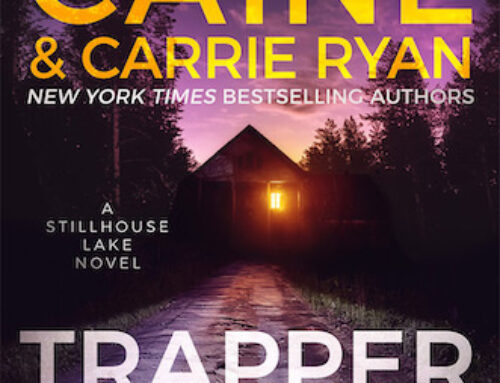Diana has a wonderful series on her blog right now which is basically a primer on writing. She goes into detail on all of the basic industry terms and demystifies a lot of them (like what’s really important when formatting a manuscript). It’s a really useful series and even if you know it all already, it’s nice just to get a little refresher.
One of the points that she makes that I think cannot be made enough is that writers tend to focus on things that don’t matter. As someone who is starting on querying, I understand how easy it is to be tempted by these things. To wonder if I’d have a better shot at publishing if I just submitted in Courier, to wonder if my page count is too high/too low and I should re-count my pages by some other method (like 250xpage count) to see if that’s a better count for me.
But these things don’t matter – what matters is the writing. Diana said something else on her blog recently that really really resonated with me: “People often ask if it’s difficult to find an agent. The truth is, if you have the right book, finding an agent is a relatively straightforward process. If you don’t, it’s very very very very hard.” You know, sometimes you just hear something that gets you in the gut. This was one of those.
It’s not about whether you put an extra space between paragraphs in your query letter (I do) and then indent (I do as well). It’s about the book. It’s not about whether you put your contact information on the front page of the manuscript in the bottom left or top right corner, it’s about the writing (and you do need the contact info somewhere!)
And yet it is so easy to focus on those little things, those things that don’t matter. It reminds me of a story I heard once about the managers of a corporation putting together a $100 million budget.* The parsed out millions on salaries, marketing, legal fees, etc. And then it came down to the last $500 dollars and they started to bicker over 1 ply toilet paper or 2 ply, whether to use plastic cups in the break room or paper. All of these tiny little things that really were a drop in the bucket of that massive budget. But to the managers, these were numbers that were fathomable, and within their control. These were numbers they dealt with in their every day lives. They felt a sense of control with these numbers that they didn’t feel with the massive millions.
I think writers get that way. Yes you can control your writing, but you can’t control whether the agent likes it. And so sometimes we focus way too much on the little things. Font, location of page numbers, how to sign off the query letter, whether to thank the agent or not.
To a certain extent, having started doing a lot of in depth agent research, I can understand this. There are some agents out there who are picky about what they want and how they want it (which they have every right to be). But they are so adamant about how they want things that sometimes it reads that submitting any other way is incorrect (the first line of your query letter isn’t the hook? Bad! Your plot summary in the query is more than one paragraph? Bad!). These agents make it easy to worry, make us second guess the way we go about things (one agent said that the double space between paragraphs in a query letter is unprofessional – that’s exactly how our entire law firm of 400+ attorneys format our letters).
But the key is not to despair. Do the research. If the agent doesn’t like that extra space, take it out in that letter. If the agent wants the plot in only one paragraph, get it done (although I doubt that agent will toss a query for a really cool book simply because the plot was summarized in three paragraphs). If the agent doesn’t generally like quest stories (Rachel Vater) make sure that you don’t describe yours as such. I’ve been pleasantly surprised at just how much information on agent preferences you can find online (through their blogs, through interview on loops – especially absolutewrite.com which doesn’t require registration to read).
Now, just as you can get too worried about nit-picky formatting, it can be similarly easy to turn that obsession to determining an agent’s likes and dislikes. I mean, the internet is huge and sometimes there’s a ton out there on agent preference (for example, Rachel Vater did a version of the crapometer on her site** and you could spend a whole lotta time weeding through that). On the one hand, if Rachel Vater is your #1 pick for agent, then read on. Get to know her – her style, her likes and dislikes. You’d be amazed at how much you can pick up about an agent and his or her personality by reading through their blog for a while – I even think you can get a good sense of whether you’d be a good fit. But should you devote a ton of your time to that sort of in-depth research for 80 or 100 agents? Maybe. But at the same time, you could just be using such research as a reason to stave of the inevitable: suck it up, send out the query letter (following their guidelines, of course).
Remember that in the end, it’s about the writing. Make it easy for the agent to focus on your writing. This means present it clearly, concisely, giving the agent all the information they need to make an informed decision. Follow their rules, get to know your top choices. And then press send or let those letters drop into the PO box. Then get started on the next one!
Easier said than done, right?
________________
* Yes, it occurs to me that it prob. isn’t the managers putting together the budget, but that’s not the point of the story so stop being nit picky
** I’d link it but it’s multiple posts. Go back to March ’07 and you’ll find them all.





Oh pretty lady around the blog…
WORD UP!
The way I see it, querying agents is like applying for a job. Instead of a cover letter, you’ve got a query letter. Instead of your resume, you’ve got your synopsis (and maybe three chapters). We can tailor the query to fit what we think each individual agent is looking for, but in the end there are only a few things that matter: Do they represent the kind of book we’ve written, and are they intrigued by the plot as we’ve described it?
There’s another variable, as well: Assistants. I know Kristin Nelson’s assistant fields her queries, and I’m sure most busy agents have similar arrangements.
It sounds to me like you’ve got a really healthy approach to the whole crazy process, and I have my fingers crossed for you!
Heather, I totally agree. Something I forgot to put in that whole post is how easy it is to get stressed about what time in the year to query. Last night I found myself thinking “if all the big agencies have their summer interns starting now, will they know the agent’s preferences already and if not should I wait a while to query? But then that pushes me up against RWA nationals which will inevitably lead to a deluge… aaahhh!” See. Some variables are just not worth worrying about 🙂
That totally sounds like overthinking 101..
There’s an agent who tells a story of how she picked an author. Basically one of her long time authors decided to part ways and she was bummed even though she understood, so she was determined to sign a new client that day and went storming through her pile until she found one.
You never should assume what is happening at an agency.
Great blog! Life was much easier before the great agent search started. 🙂
Patrick – you’re totally right! I’m so not a fan of overthinking these things. But sometimes it’s easy to slide in that direction. And sometimes I enjoy overthinking – just wondering little things. It’s when the overthinking stops you from acting or stresses you out that it becomes a big problem (I think). But musing… that’s good stuff sometimes 🙂
It’s so easy to overthink. but I think you’re exactly right. It’s a ritual — control all the little things and maybe the big ones will fall into place.
Oh, don’t get me wrong, overthinking is one of my greatest strengths. I love it! I have to talk myself out of it all the time.
Great post. I’ll be linking to this in the future. Hell, I might even print it out and stare at it!
Diana’s blog was excellent. And I’ve finally added you to my “Great Blog List.” Sorry that took so long! 🙂